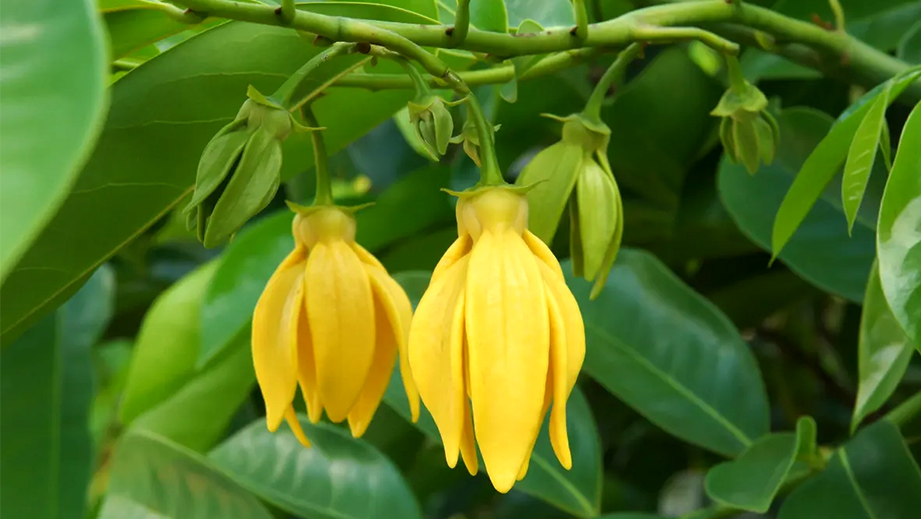
If you're looking for a way to enhance your beauty, you may be interested in learning more about the research on Ylang Ylang Oil. As with many natural ingredients, there are a number of benefits you can gain from its use. From aphrodisiacs to sedatives, the list of benefits is endless. You'll also find information on insect repellents and self-esteem boosters, so you'll have everything you need to know right at your fingertips.
How Does Ylang Ylang Oil help with Self-esteem?
One of the most popular essential oils used for aromatherapy is ylang ylang. It is known for its calming and relaxing effects. In fact, ylang ylang has been proven to lower anxiety. This essential oil may also be effective in treating acute depression. Its use can help you overcome stress, improve your memory, and increase your self-esteem.
In a significant study, the subjects were divided into three groups. One group was given ylang ylang by inhalation, while another was given a placebo. The results showed that the subjects in the ylang ylang group felt more relaxed.
Another reliable study shows that the use of ylang ylang oil improves the levels of self-esteem in women. It increases self-confidence and reduces the level of fear, anger, and stress.
What are the Benefits of Ylang Ylang Oil?
Ylang Ylang oil is a calming and intoxicating essential oil. It helps stimulate blood flow to the muscles and enhances your mood. It also arouses sensuality and promotes self-esteem. It can be used on the scalp, back, or feet.
Ylang Ylang oil is also known to cure skin conditions, such as acne, and prevents infection. It helps relieve stress and inflammation. It may also be helpful for hair loss. It can be used in shampoo and other beauty products. It can be added to lotions and creams. It is also popular as an aromatherapy ingredient.
Ylang Ylang is a flower that grows in tropical rainforests of Asia. It is a unique flower, with a powerful scent that can have a calming effect on the body and mind.
Ylang Ylang Oil Use as an Anti-depressant
Ylang Ylang Oil is a wonderful ingredient that can help you overcome anxiety and depression. This essential oil is used to treat insomnia and to improve your mood. It has an aroma that is very calming.
When you apply Ylang Ylang Oil on your skin, it helps to reduce fatigue, dryness and irritation. It is also known to improve self esteem and enhance confidence. It can be helpful in preventing infections and promoting new hair growth. It can also lower blood pressure and stress. You can use this oil in massage oils and scented candles.
Some other benefits of Ylang Ylang Oil are that it can be used to promote healthy sleep, soothe inflammation, relieve pain and improve circulation. It can also be useful to fight depression and increase libido.
Ylang Ylang Oil has a Calming and Sedative Effect
Ylang Ylang oil has a pleasant aroma that will evoke feelings of calmness and peace. The sedative effects of Ylang Ylang oil are believed to be due to its ability to activate the parasympathetic nervous system. It has the ability to relieve tension, promote relaxation, and increase self-esteem.
Ylang Ylang Oil Use as an Insect repellent
Ylang Ylang Oil is a natural insect repellent that can protect you from mosquitoes. It's a great alternative to chemical compounds such as DEET. Aside from repelling insects, it also helps balance sebum production in the skin, thereby reducing inflammation. You can use Ylang Ylang Oil in a variety of ways, including rubbing it on your skin or in your favorite massage oil. It's also great in a room diffuser.
The Ylang Ylang tree is native to Asia and Polynesia. Its flowers are used in perfumery, as well as in healing. Traditionally, it was used to treat bites, infections and malaria.
In Conclusion
Ylang Ylang is known for its floral aroma and soothing properties. It can help with dry skin, dandruff and acne breakouts. It can also promote oil production in the scalp. Ylang Ylang has been used since ancient times for its medicinal benefits. It is a rich source of volatile organic compounds. Among its key components are liriodenine, geranyl acetate, and linalool. The plant is also considered an antifungal, antimicrobial, and anti-inflammatory. It is also a natural insect repellent.
Recent Posts
- Ylang Ylang Oil for Stress Relief: Aromatherapy Techniques
- The Spiritual Significance of Sandalwood Oil in Various Cultures
- Top 10 Health Benefits of Geranium Oil
- The Role of Neroli Oil in Traditional Medicine
- Comparing Synthetic and Natural Fragrance Oils: What Indian Manufacturers Offer
- Why India is a Leading Hub for Affordable, High-Quality Fragrance Oils
- Agarbatti, Incense & Bakhoor
Copyright @ 2024 | BMV Fragrances Private Limited | All Rights Reserved
